Catriona Morrison
Chair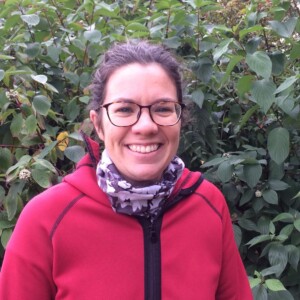
Cat is a post-doctoral researcher at the University of East Anglia. Her primary research interests lie in using citizen science data to understand the demographic and environmental processes influencing the population dynamics of birds, and inform conservation management. She is involved in mentoring and facilitating the development of Early Career Researchers. Cat is an Associate Editor of IBIS and has been a member of BOU Meetings Committee since 2020.
Follow Cat on Twitter @CatMorrison18
Vojtěch Brlík
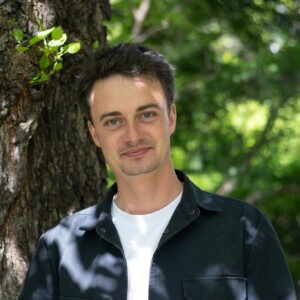
Vojtěch is a postdoctoral fellow at the Czech Academy of Sciences and Charles University in Czechia. His research centres on the ecological consequences of seasonal bird migration, particularly focusing on understanding the seasonal connections within the annual cycle of migratory birds and their implications for conservation strategies aimed at mitigating negative population trends in these highly mobile species. Vojtěch employs a combination of individual tracking, remote environmental sensing, and breeding performance assessments, while also developing continental-scale isotopic maps to trace wintering origins in the least known areas of Africa. Additionally, he leads a Working Group within the EUFLYNET COST Action project, dedicated to reviewing the past activities in movement ecology and to identify potential gaps and biases in the field.
Follow Vojtěch on Twitter @VojtechBrlik
Jenny Coomes

Jenny is a Marine Ornithologist at the Scottish Government’s Marine Directorate. Her work focuses on assessing the impacts of offshore wind developments on Scotland’s seabirds. She is also involved in research projects to develop our understanding of a variety of aspects of seabird ecology such as breeding ecology, distribution, impacts of avian influenza and gathering data such as flight height to inform assessments for offshore wind. Jenny completed her PhD at University College Cork in Ireland in 2022 where she examined how cognition and personality in great tits influence behavioural plasticity and foraging ecology in the wild, using DNA metabarcoding to identify diet of wild birds.
Josh Copping

Josh is a Conservation Scientist at the RSPB whose work draws on his background in quantitative ecology. His work focuses on spatially explicit land use scenario modelling, exploring how we can balance conservation, land-based climate solutions, and the competing demands we place on land for food, energy, and more. Josh is especially interested in how birds respond to novel land uses and changing landscapes. He completed a PhD in 2021, investigating the spatial and temporal transferability of species distribution models to improve predictions in data-sparse areas.
Joelene Hughes
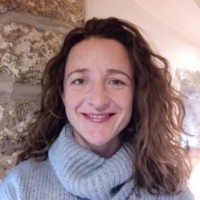
After many wonderful years of being involved in ecological and biodiversity conservation research that has taken her from the Arctic to Antarctica via many countries in between, Joelene’s research interests now lie in studying people for the benefit of nature conservation. After completing a PhD at the University of Aberdeen, Joelene mixed ecological and social research as a post-doc at the University of Oxford before moving to the RSPB. As a Principal Conservation Scientist for RSPB, Joelene explores the relationships between nature, humans and conservation. She is involved in a range of collaborations and research projects investigating, among other things, the concept of connection to nature, sense of place, attitudes, conflicts and other factors that may affect or spark pro-conservation behaviour.
Follow Joelene on Twitter @joelene_x3
Angela Langford
Journal & Office Manager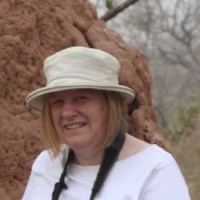
Angela graduated from Hull University with a BSc in Environmental Botany and Geography, went on to do a PGCE and taught Science for a number of years. After starting a family she decided on a change of direction and set up a carnivorous plant nursery and tropical butterfly house in southern Scotland. Still looking for a new challenge she later established a second hand bookshop in Wigtown (Scotland’s National booktown), specialising in natural history. This love of books lead to establishing a publishing business, Langford Press, which concentrated on wildlife art. Living in beautiful Pembrokeshire, Angela spends her spare time walking the coastal path with her dog and enjoying the wonderful wildlife of the area. Angela joined the BOU as a staff member in 2008.
Barry John McMahon
 Barry was appointed a Lecturer in Wildlife Conservation & Zoonotic Epidemiology in the UCD School of Agriculture & Food, University College Dublin in 2011. Previously, he had been a post-doctoral researcher examining the interaction between agriculture and biodiversity. His current research focuses on diseases, including antimicrobial resistance, that are reservoired in or disseminated by wild birds and mammals. In addition, Barry is interested in understanding the population biology of Red Grouse (Lagopus lagopus hibernicus) in Ireland and this research contributed to the Red Grouse Species Action Plan 2013.
Barry was appointed a Lecturer in Wildlife Conservation & Zoonotic Epidemiology in the UCD School of Agriculture & Food, University College Dublin in 2011. Previously, he had been a post-doctoral researcher examining the interaction between agriculture and biodiversity. His current research focuses on diseases, including antimicrobial resistance, that are reservoired in or disseminated by wild birds and mammals. In addition, Barry is interested in understanding the population biology of Red Grouse (Lagopus lagopus hibernicus) in Ireland and this research contributed to the Red Grouse Species Action Plan 2013.
Alice Risely
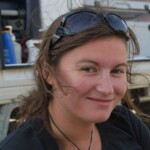 Alice is currently a research fellow and teacher at University of Salford studying host-microbe interactions with a focus on the gut microbiomes of wild populations. Her academic journey began with a fascination with bird migration, and during her PhD she researched host-microbe interactions in long-distance migratory shorebirds. Alice therefore has a long-standing interest in how migrants transport microbes and pathogens, and how animal movements in general contribute to microbial and pathogen transmission. After a number of years researching mammal microbiomes, Alice is now moving back to her ornithology roots and focusing on understanding how urban resource use in gulls influences gut microbial ecology and evolution.
Alice is currently a research fellow and teacher at University of Salford studying host-microbe interactions with a focus on the gut microbiomes of wild populations. Her academic journey began with a fascination with bird migration, and during her PhD she researched host-microbe interactions in long-distance migratory shorebirds. Alice therefore has a long-standing interest in how migrants transport microbes and pathogens, and how animal movements in general contribute to microbial and pathogen transmission. After a number of years researching mammal microbiomes, Alice is now moving back to her ornithology roots and focusing on understanding how urban resource use in gulls influences gut microbial ecology and evolution.
Follow Alice on Twitter @risely_a
Emily Simmonds (she/her)
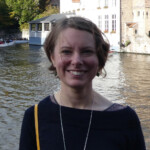 Emily is a researcher currently working at the Norwegian University of Science and Technology and the University of Edinburgh. Her primary research interests are understanding how populations might respond to environmental changes. Emily completed her PhD at the University of Oxford studying phenology and population dynamics of great tits. Since then, she has held a post doc at the Norwegian University of Science and Technology expanding her work into integrated distribution modelling and uncertainty quantification. Now working on her own project funded by the Research Council of Norway, Emily is looking to improve the robustness and reliability of our predictions of population responses to climate change.
Emily is a researcher currently working at the Norwegian University of Science and Technology and the University of Edinburgh. Her primary research interests are understanding how populations might respond to environmental changes. Emily completed her PhD at the University of Oxford studying phenology and population dynamics of great tits. Since then, she has held a post doc at the Norwegian University of Science and Technology expanding her work into integrated distribution modelling and uncertainty quantification. Now working on her own project funded by the Research Council of Norway, Emily is looking to improve the robustness and reliability of our predictions of population responses to climate change.
Follow Emily on Twitter @EmilySimmonds10
Megan Thompson
 Megan is a postdoctoral researcher at the University of Edinburgh. She is an Evolutionary Ecologist whose research focuses on wildlife in cities. Her research uses long-term datasets, meta-analyses, and experimental approaches to determine how urbanisation is impacting phenotypic and genetic change in wild (mainly bird) populations. Megan completed her PhD jointly between Canada and France, and has been awarded a junior fellowship in the UK that will allow her to establish how climate warming is affecting the breeding phenology and fitness of urban tit populations across the UK and Europe.
Megan is a postdoctoral researcher at the University of Edinburgh. She is an Evolutionary Ecologist whose research focuses on wildlife in cities. Her research uses long-term datasets, meta-analyses, and experimental approaches to determine how urbanisation is impacting phenotypic and genetic change in wild (mainly bird) populations. Megan completed her PhD jointly between Canada and France, and has been awarded a junior fellowship in the UK that will allow her to establish how climate warming is affecting the breeding phenology and fitness of urban tit populations across the UK and Europe.
Follow Megan on Bluesky @meganjthompson.bsky.social
Leila Walker (she/her)
Chief Operations Officer
Leila has responsibility for the day to day management and running of the BOU including conferences and events, the business side of the BOU’s journal, IBIS, social media and communications, website development and content management and servicing BOU Council and its Standing Committees.
Follow Leila on Twitter @leilakwalker


